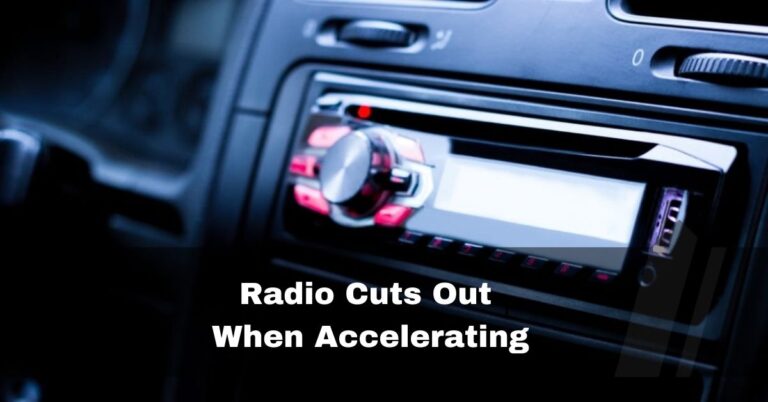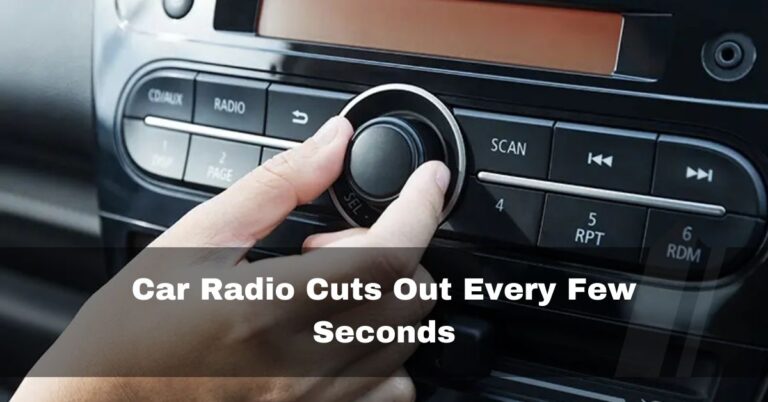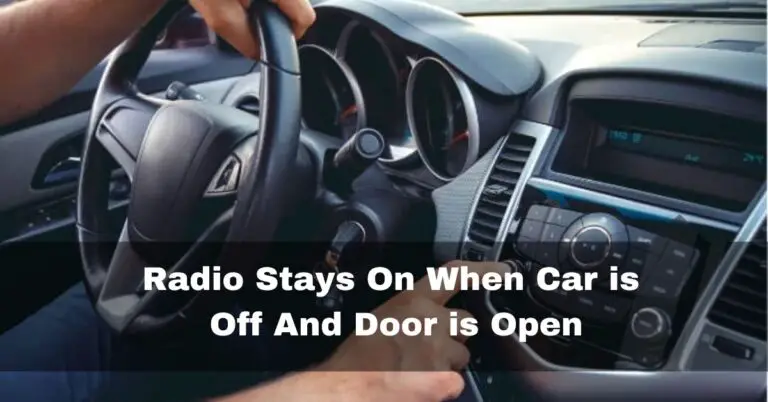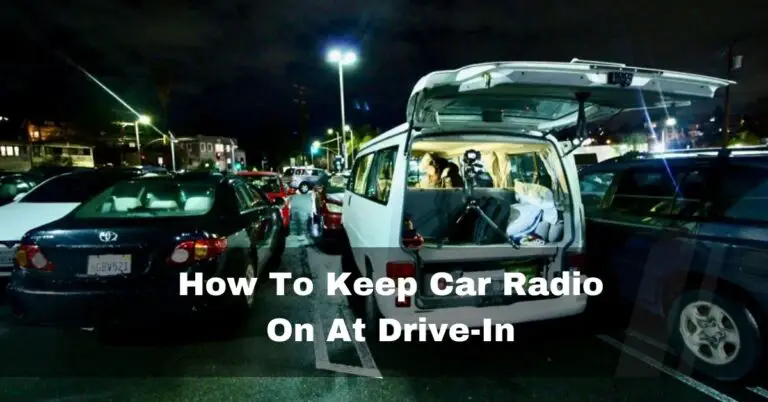Can A GPS Tracker Interfere With A Car Radio – Hidden Truth
As a car owner who values both safety and convenience, I understand the importance of GPS trackers in modern vehicle security systems. However, like many others, I’ve also had concerns about whether integrating a GPS tracker could potentially interfere with my car’s radio system.
No, GPS trackers do not typically interfere with a car radio because they operate on different frequency bands and are designed to minimize interference.
In this comprehensive article, we’ll delve into the topic and debunk the myth of GPS trackers causing radio interference.
Table of Contents
The Mechanics Of Radio Interference:
Before we can say for sure if a GPS tracker can mess up a car radio, we need to know how radio interference works. The radio system in a car usually works on bands between AM (Amplitude Modulation) and FM (Frequency Modulation).
On the other hand, GPS trackers talk to satellites using a different set of bands, mainly in the L-band range (around 1.5 GHz).
Why GPS Trackers Are Unlikely To Interfere With Car Radio?
In my experience as a car owner who values both navigation convenience and radio entertainment, I’ve often wondered about the potential for GPS trackers to interfere with car radios.
1. Frequency Separation:
Car radios and GPS trackers work on very different frequency bands. The frequency range for car radios, such as AM and FM, is kHz, while the frequency range for GPS trackers is GHz. Because these systems use different frequencies, it is very unlikely that one will interfere with the other.

Also Read: How Long Does A Car Battery Last With Radio On
2. Shielding And Design:
Companies that make GPS trackers know how important it is to keep electromagnetic radiation to a minimum. Their devices are made to give off as little electromagnetic radiation as possible, which makes it less likely that they will interfere with other electrical systems in a car.
3. Regulatory Compliance:
Companies that make GPS trackers have to follow rules set by regulators to make sure their gadgets don’t mess up other electronics. With these guidelines, you can be sure that GPS trackers are made to work without messing up essential parts of your car, like the radio system.

4. Testing And Certification:
GPS trackers usually go through strict testing and certification processes before they are sold to the public. This is done to make sure they meet set electromagnetic compatibility (EMC) standards. This makes it even more confident that they will keep the radio and other electronics in the car.
However, upon further investigation and personal observation, it’s become apparent that GPS trackers are unlikely to cause interference with car radios.
Factors Contributing To Interference Concerns Of GPS Tracker With Car Radio
Even though GPS trackers and car radios won’t interact with each other directly, some things could make people worried.
1. Improper Installation:
Signal crossing can happen if both the GPS tracker and the car radio are not installed correctly. It is vital to follow the manufacturer’s instructions to the letter and keep the antennas far enough apart.

2. Faulty Equipment:
Even though it doesn’t happen often, a broken GPS tracker could send out too much electromagnetic radiation. Well-known GPS tracker makers put their goods through a lot of tests to make sure these problems don’t happen.
Also Read: Sirius Radio Say No Signal
Can a GPS Tracker Cause Car Electronics Issues?
It’s highly unlikely. A GPS tracker that is properly built and installed shouldn’t mess up your car’s electronics. Trackers that use GPS are made so that they don’t mess up other computer parts in a car.
But sometimes, problems like electrical shorts or interruptions can happen because of bad fitting, low-quality trackers, or bad wiring. To keep issues to a minimum, it’s essential to follow the manufacturer’s installation directions, use good products, and make sure the wiring is done right.
If you think a GPS tracker is messing up your car’s electronics, you should have a professional look at it and fix the problem.
Potential Electrical Problems Caused From A GPS Car Tracker:
GPS car trackers are made to have a minimal effect on a car’s power system. But sometimes, or if they need to be installed right, they can cause electricity problems. Here are some issues that might come up:
1. Battery Drain:
Even when the car is not running, a GPS tracker can use power from the battery if it is not placed correctly or wired. This can cause the battery to die over time, making it hard or impossible to start the car.

2. Short Circuits:
Electrical short circuits can happen when wiring is put incorrectly or is damaged during the installation of a GPS tracker. Shorts can lead to a number of issues, such as blown fuses, strange behavior in-car systems, and even fire risks.
3. Faulty Connections:
If the connections need to be tight enough or at all during installation, the GPS tracker might need to be fixed, or, in some cases, the car’s electrical system might have problems from time to time.
4. Radio Interference:
It doesn’t happen very often, but electromagnetic interference or inadequate shielding from the GPS tracker could affect other electronics in the car, like the radio or navigation system.
5. Diminished Signal Strength:
If the GPS tracker antenna isn’t correctly placed or shielded, it may receive weaker satellite signals, which makes the tracker’s position data less accurate.
Also Read: Radio Stays On When Car Is Off And Door Is Open
6. Overheating:
If a GPS tracker is not installed correctly or is put in place with poor airflow, it may get too hot and stop working or even get damaged.

It is important to remember that these problems should not happen if GPS trackers are installed by a professional or if car owners follow the manufacturer’s instructions for installation.
What Can Disrupt GPS Signal?
Some things, like tall buildings, thick forests, and natural obstacles like mountains, can block the line of sight to GPS satellites and mess up GPS signals.
Electronic devices like radio transmitters and equipment that aren’t adequately shielded can also cause electromagnetic interference that can mess up GPS readings.
Conditions in the atmosphere, like bad weather or sun activity, can also change how accurate a signal is. Lastly, devices that intentionally mess with or jam GPS signals can be used to do bad things.
Related Questions:
1. Can Electromagnetic Interference From A GPS Tracker Disrupt The Car Radio?
Manufacturers of GPS trackers try to keep electromagnetic radiation to a minimum. They make sure that their gadgets don’t mess up other electronic systems in a car, like the car radio, by covering them and taking other safety measures.
2. Are GPS Trackers Regulated To Prevent Interference With Car Electronics?
Yes, companies that make GPS trackers have to follow strict rules about electromagnetic compatibility (EMC). Following these rules makes sure that GPS trackers are built so that they don’t mess up other electronics in a car.
3. Can A GPS Tracker Cause Electrical Problems?
Yes, if incorrectly installed, a GPS tracker can draw power from the vehicle’s electrical system even when the engine is off, leading to battery drainage.
4. Can You Tell If Someone Put A GPS Tracker On Your Car?
Check underneath the vehicle, including the wheel wells and bumpers, for unusual attachments, magnets, or wires as potential signs of a GPS tracker.
5. How Can You Tell If Someone Bugged Your Car?
Unusual sounds during phone calls made in the car, such as static, clicking, or buzzing, may indicate the presence of a bug interfering with the phone’s signal.
6. What Happens If You Remove Dealership Tracker?
Removing a dealership-installed tracker violates the loan agreement terms and may result in legal action, including repossession of the car.
7. Are There Any GPS Jammers Or Devices That Can Intentionally Interfere With GPS Signals?
Yes, GPS jammers exist, but many countries prohibit their use due to safety and security concerns. Intentional GPS signal interference can disrupt both GPS trackers and navigation systems, posing significant risks.
8. Can A GPS Tracker Be Blocked?
Yes, it is possible to stop or jam GPS trackers on purpose. Still, it’s essential to know that using blocks or jammers to mess with GPS signals is against the law in many countries for safety and security reasons.
9. What Are Things That A GPS Tracker Can Interfere With?
A GPS tracker can interfere with car radios, mobile phones, navigation systems, vehicle electronics, other GPS devices, communication systems, and electronic security systems.
10. Can GPS Trackers Interfere With ABS (Anti-Lock Braking System) Or Traction Control?
No, GPS trackers shouldn’t mess with essential systems in a car, like the ABS or traction control. These systems work on various networks and bands, and they are made to work on their own.
Conclusion:
In general, there is a minimal chance that a GPS tracker will mess up a car radio. To keep this kind of interference from happening, these devices are planned, made, and regulated with tight rules in mind. Frequency separation, electromagnetic shielding, and following the rules all help GPS tracking and car radio systems work together without any problems in a vehicle. If you have radio interference in your car, it’s probably not because of your GPS tracker. It could be because of bad reception, faulty wiring, or electronic problems.
Also Read:
- Car Radio Only Works In Accessory Mode
- Car Radio Display Fading
- Car Radio Cuts Out Every Few Seconds
- Car Radio Screen Flickering
References:
- https://www.seeworldgps.com/knowledge/can-a-gps-tracker-cause-car-electronics-issues/
- https://www.reddit.com/r/cruze/comments/ed5wk3/gps_tracking_device_causing_interference_with_fm/
- https://www.quora.com/What-are-things-that-a-gps-tracker-can-interfere-with
- https://spycamcentral.com/faq/can-a-vehicle-gps-tracker-interfere-with-other-electronics-in-my-car/



![What Is TP On Car Radio – [2024] What It Is & How To Use It](https://vehicleslounge.com/wp-content/uploads/2023/08/What-Is-TP-On-Car-Radio-768x402.jpg)



